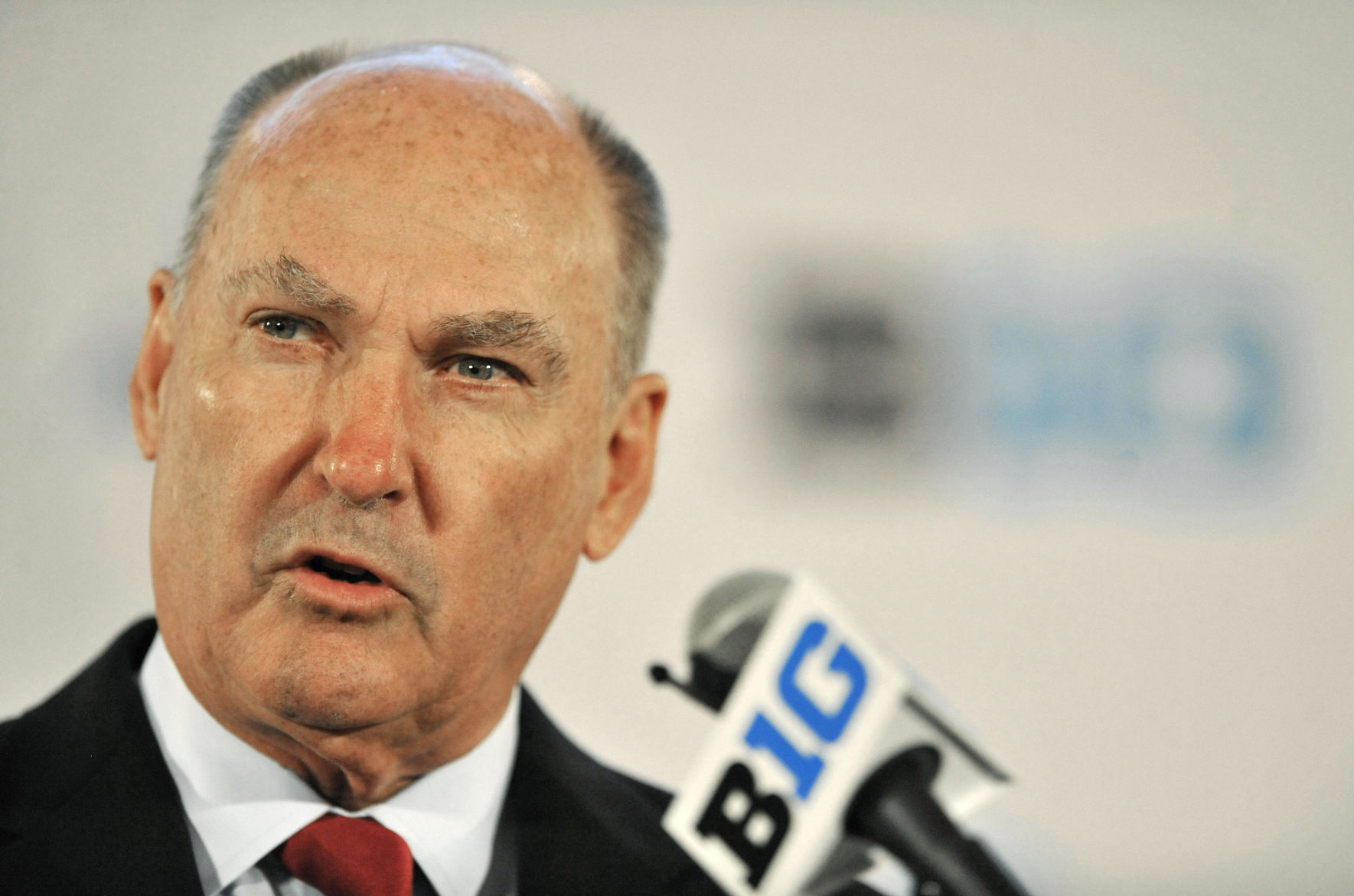NEW YORK (AP) — Big Ten Commissioner Jim Delany says he wasn’t shocked by the FBI investigation into college basketball because of the history of federal law enforcement intersecting with the sport. At Big Ten media day on Thursday at
NEW YORK (AP) — Big Ten Commissioner Jim Delany says he wasn’t shocked by the FBI investigation into college basketball because of the history of federal law enforcement intersecting with the sport.
At Big Ten media day on Thursday at Madison Square Garden, Delany said the conference has had no contact with the FBI about the investigation.
“We really don’t have any facts other than what we’ve read,” Delany said.
Last month, 10 men — including a top Adidas executive and four assistant basketball coaches at Power Five conference programs — were charged with using hundreds of thousands of dollars in bribes to influence star athletes’ choice of colleges, shoe sponsors, agents and even tailors. None of the programs involved so far are in the Big Ten.
Delany said he could count at least nine times during his lifetime, dating back to the gambling and point-shaving scandals of the 1950s, when federal investigators have moved on college basketball.
“So, we should all be concerned,” he said. “We don’t know what we don’t know. Our coaches will coach, and they will do the best they can to get students to class and get them on the right path. But beyond that, the Big Ten does not have any information that you otherwise don’t have. Speculation probably doesn’t benefit anybody at this juncture.”
NCAA President Mark Emmert announced last week the formation of a commission, led by former Secretary of State Condoleezza Rice, to examine ways to improve college basketball recruiting.
Delany said he directed Big Ten coaches to speak with Ohio State athletic director Gene Smith, who is a member of the committee, if they have any information to share or ideas to help improve existing issues.
“I think internally we’ll have some discussions and pass on our recommendations to the commission. I think President Emmert put it well, half steps are not sufficient,” Delany said.
“There are obviously a number of things that could be done structurally, but also one of the things that stands out to me is that in the first investigations, it was external people working with players to fix games. In the last three or four (scandals) there’s been more engagement on the agent side, the adviser side, still some, perhaps, gambling. And in these most recent cases, there are people inside of our programs. That’s a big difference between being inside and outside.”
Delany was asked about the NCAA committee on infraction’s decision on North Carolina after a long investigation into possible academic misconduct involving athletes. The NCAA concluded it did not have jurisdiction in the matter because the questionable classes offered by North Carolina were not offered only to athletes.
“They were not good practices for students. They were not good practices for the university or its athletes, they’ve taken a lot of collective action,” Delany said. “I don’t think it was a win or a loss. I think it was NCAA has some limitations in terms of the applications of its bylaws.”


